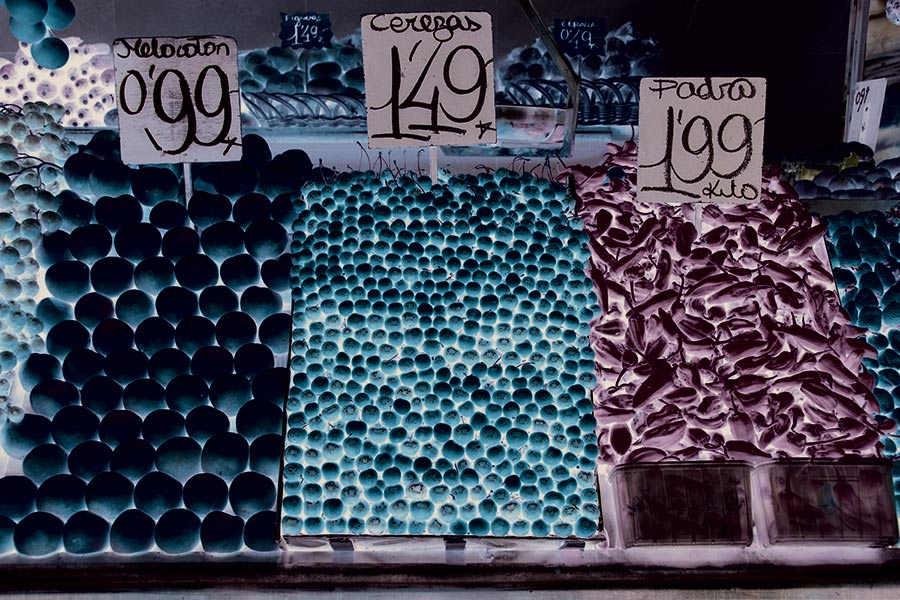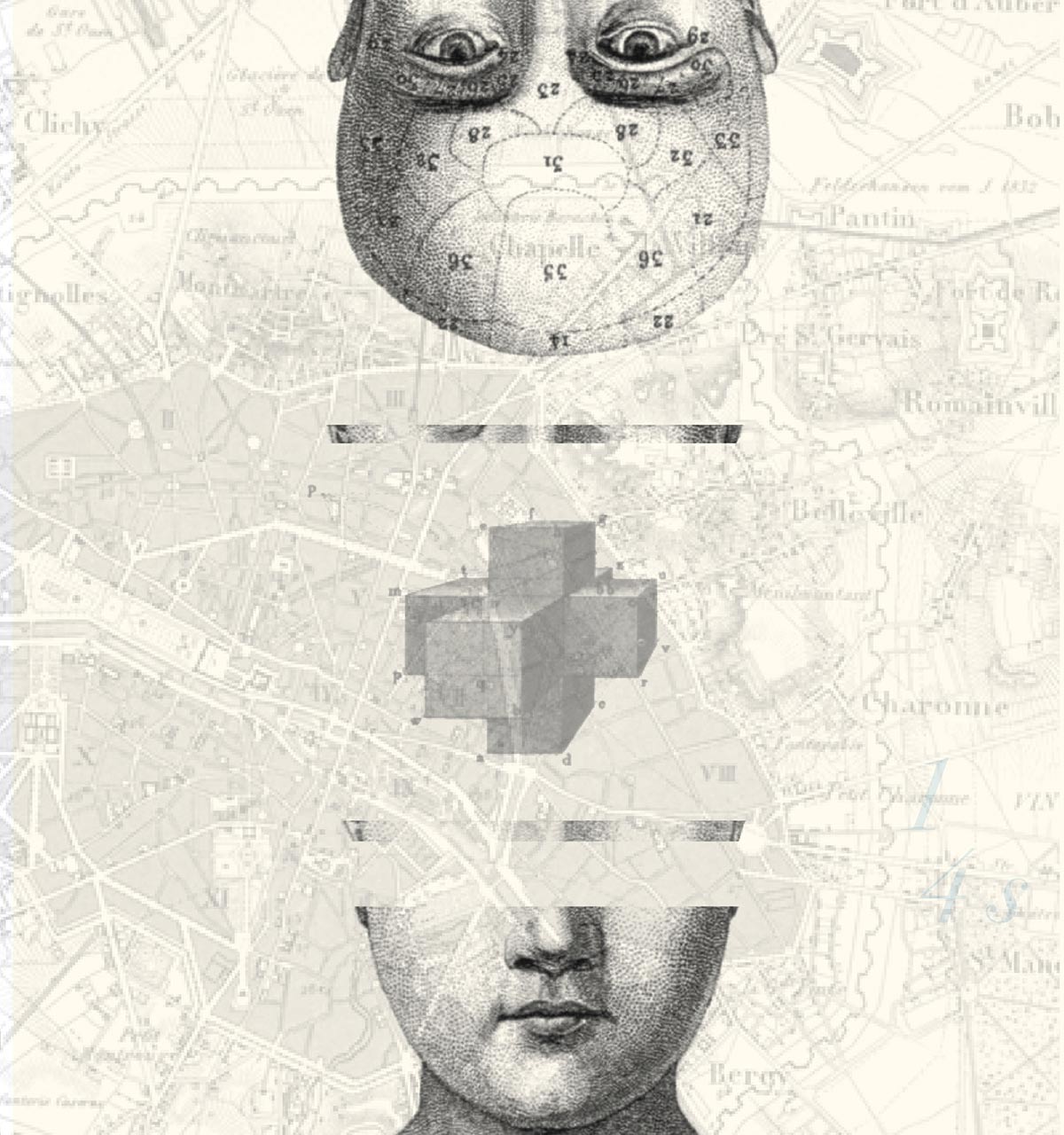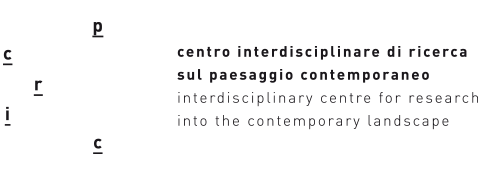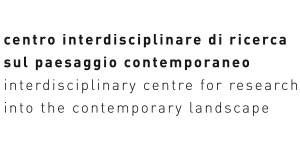Le stanze della coscienza
The Rooms of Consciousness
Intervista a Edoardo Boncinelli
di Maurizio Rossi
Nel descrivere la condotta umana si usa contrapporre all’impulso irrazionale il senno di poi, all’istinto la ragione. Quasi a suggerire che la riflessione dell’intelletto è confutazione del naturale sentire. La neuroeconomia ha messo poi allo scoperto quanto sia ingannevole la presunta razionalità di certe scelte, dimostrando che incorriamo sistematicamente in illusioni cognitive.
La specie umana è davvero affrancata dalle predisposizioni che hanno origine nelle aree più antiche del nostro cervello?
Almeno fino a centocinquantamila anni fa le strategie adottate dall’uomo erano quasi tutte suggerite tacitamente dall’istinto. Il mondo è cambiato e i problemi che l’uomo contemporaneo deve affrontare sono molto diversi rispetto a quelli di una volta. Se spesso il nostro comportamento è il risultato della complementarietà di istinto e raziocinio, altre volte tra le due istanze si genera un certo conflitto. Si tratta di una questione che le neuroscienze hanno affrontato approfonditamente nel corso degli ultimi trent’anni, arrivando alla conclusione interessante, ma pur sempre provvisoria, che nell’uomo esistono due diverse strategie decisionali. La prima corrisponde al cosiddetto Sistema Uno: un processo immediato e istintivo basato sulle prime apparenze ed espressione delle nostre naturali propensioni. Sebbene la velocità della scelta comporti un livello di approssimazione che spesso si traduce in inesattezza ed errore, si tratta di una modalità che utilizziamo continuamente nella vita di tutti i giorni. La stessa, ad esempio, che rende preferibile un prodotto che costa € 9,99 rispetto a quello che riporta un prezzo di cartellino maggiore di un solo centesimo: riflettendoci, il risparmio è davvero insignificante ma la percezione immediata è che il primo sia decisamente più conveniente.
La seconda strategia decisionale è detta Sistema Due: un processo razionale che, all’occorrenza, si contrappone e corregge la fallacia del Sistema Uno. D’istinto noi adottiamo sempre il primo sistema, perché non ci costa nessuno sforzo: è espressione di tutto il nostro corpo e trova la sua origine nell’area subcorticale del nostro cervello. Il Sistema Due è più rigoroso ma più elaborato e faticoso, richiede sforzo e impegno. L’istinto è parte dell’uomo ma, mentre negli altri animali è pressoché incontrovertibile, nella nostra specie può essere deviato, represso, se non invertito. Basti pensare che nonostante la paura istintiva del fuoco condivisa con gli altri animali, molti di noi si riuniscono con piacere attorno a un camino. A mediare fra la nostra spinta istintuale e la nostra capacità raziocinante interviene la capacità repressiva della corteccia cerebrale. Essa si basa sui principi dell’istinto ma accoglie anche ciò che abbiamo appreso attraverso l’esperienza e la cultura. Siamo dunque il risultato dell’interazione fra un’evoluzione biologica che ci conduce istintivamente in determinate direzioni e un’evoluzione culturale che ci introduce alla valutazione di aspetti diversi. Nella stragrande maggioranza dei casi le priorità dell’uomo di oggi sono complesse e non coincidono perfettamente con gli obiettivi dell’evoluzione biologica. In fondo la vita dell’uomo primitivo era governata da bisogni primari: scappare davanti a un predatore o affrontarlo, procurarsi da mangiare e trovare una partner per procreare.
Neccessità che non sono scomparse, ma che la nostra cultura ha profondamente trasfigurato. Senza contare poi che l’artificiosità della nostra società ci porta a fare cose che a noi piacciono tantissimo, come andare al teatro o dedicarci all’arte, ma che dal punto di vista biologico non servono a niente. Attività che pur interessandoci e coinvolgendoci quanto le altre non sono contemplate dal nostro patrimonio genetico e non hanno un riscontro istintuale. Pertanto la strategie che interessano l’uomo contemporaneo sono ben altre da quelle della mera sopravvivenza.

Che cos’è un’emozione? E che influenza ha nelle nostre scelte?
Anche se inconsapevolmente, l’origine e il fine delle emozioni è strategico alle istanze di sopravvivenza. Hanno uno scopo ben preciso: farci vivere al meglio le situazioni che ci troviamo ad affrontare. In altre parole, le emozioni ci indirizzano verso quello che sappiamo ci procurerà piacere e ci allontanano da quello che sappiamo ci darà dispiacere. Nel complesso sistema umano di elaborazione dei dati e delle scelte questa dinamica fondamentale e originaria non sempre è palese. Una visione essenzialmente utilitaristica della sfera emotiva che, di fatto, si scontra con la diffusa concezione tardo-romantica secondo cui le emozioni sono sempre gratuite e incomprensibili, massima espressione dell’ineffabilità dell’esistenza. In realtà, noi siamo saldamente incardinati al nostro corpo, strutturati sulle sue spinte. Se è pur vero che abbiamo la capacità di volare alto, di andare al di là di tutto questo, non dobbiamo mai dimenticare qual è l’impluso vitale all’origine della nostre scelte e delle nostre iniziative. Per millenni le emozioni sono state strettamente funzionali alla nostra sopravvivenza. Nel corso dell’evoluzione culturale sono state metabolizzate, sublimate e trasformate a tal punto da diventare quasi imperscrutabili. Tendiamo a rimuoverne l’origine, imputando la loro esistenza a quella regione immaginaria che gli inglesi chiamano out of the blue. Anche se l’uomo è libero di seguire condotte antibiologiche come il digiuno e la castità, gran parte delle nostre azioni continua ad avere una giustificazione biologica. Nel prendere una decisione, l’emozione vince sulla razionalità novantotto volte su cento, anche se in maniera più o meno consapevole. E se nel soppesare ragionevolmente i pro e contro di una scelta importante si arriva ad un impasse, la decisione finale spetta comunque all’emozione. In conclusione, rimaniamo ancora dei tipi molto emotivi.
Esistono, allora, scelte pienamente consapevoli? Possiamo ancora parlare di responsabilità di coscienza e libero arbitrio?
Su chi decide, non ho dubbi: decide il corpo. Il fatto è che la nostra tradizione culturale tende sempre a tenere separato il corpo dalla mente, attribuendo ad esso una funzionalità autonoma oggetto d’indagine della biologia. Mentre intediamo la psiche e l‘Io come una realtà dissociata dal corpo, terreno di indagine della psicologia, se non addirittura, della filosofia. È un atteggiamento assolutamente anacronistico, un errore che trova origine nella visione platonica dell’essere umano.
Io sono il mio corpo. Per comodità posso parlare distintamente di emozione e ragione, di aree celebrali e di lesioni sottocorticali, ma in realtà tutto si tiene: non c’è nessuna netta separazione tra un aspetto e l’altro.
E’ ormai evidenza scientifica (comprovata, ad esempio, dagli esperimenti di Benjamin Libet) che il nostro cervello prende una decisione diversi millesimi di secondo prima che io me ne renda effettivamente conto. Viviamo sempre in differita. Un preciso intervallo temporale separa la nostra consapevolezza del mondo da quella dei nostri sensi. La nostra coscienza giunge in costante ritardo. Può sembrare una limitazione della nostra libertà, ma è la natura dell’uomo e non possiamo sfuggirle. In fin dei conti, presa coscienza delle decisioni suggerite in prima battuta dal corpo, abbiamo la facoltà di accettarle o meno, e additirttura di sovvertirle. Se non c’è fretta, l’ultima decisione spetta sempre alla coscienza.
Che origine ha la creatività?
Nonostanti si parli con molta disinvoltura di creatività e inventiva, in realtà, nessuno ha mai analizzata scientificamente questi fenomeni. Non sappiamo né dove né come nascano esattamente le nostre idee, soprattutto le nostre buone idee. Senza dubbio però nascono in un terreno che attinge tanto alle emozioni e all’istinto quanto alla nostra ragione e al nostro patrimonio di sapere. Quasi sempre la creatività nasce da una solida conoscenza. E dall’assenza di paura di essere diversi e di andare contro la tradizione. La natura della creatività è ibrida. Bisogna infatti fare attenzione a non privilegiare, impropriamente, soltanto la sfera emotiva. Per rompere gli schemi è prima necessario conoscerli profondamente. Nella scienza, nella filosofia, nell’arte, nella musica o nella letteratira il vero creativo è persona di grande cultura, con un interesse quasi ossessivo per la propria materia.

Se come tutti gli altri animali siamo stati forgiati per affrontare i rischi e i contrattempi di un ambiente circostante ostile e infido, l’innaturale senso di sicurezza garantito dal progresso rischia in parte di destabilizzarci?
Il nostro è un corpo assetato di emozioni. Da sempre il nostro sistema nervoso, come anche il nostro sistema endocrino, è talmente abituato alle emozioni da esserne quasi assuefatto. La mancanza di movimenti emotivi genera uno straniamento. Anche se l’uomo contemporaneo continua a provare emozioni, queste sono tipo diverso e generalmente non sono così forti come in passato. Nessuno vuole negare che il non dover stare sempre in allerta di imminenti pericoli o di non dover difendere la propria vita e quella del propri cari da predatori e avversari costituisca un grande progresso. Ma il nostro corpo e, di conseguenza, la nostra mente si ritrovano un po’ avviliti dalla carenza di emozioni totalizzanti e capaci di produrre adrenalina. E’ una situazione esistenziale che non era stata prevista dalle diverse componenti del nostro patrimonio genetico, e noi ne paghiamo lo scotto a livello psicologico. L’uomo per rispondere a questo stato delle cose ha due opportunità. Quella meno auspicabile consiste nel subire passivamente una simile repressione emotiva, percependo tutto il vuoto di una vita senza senso: è la cosiddetta depressione, la cosa peggiore che possa accadere perché toglie il fulcro alla leva dell’esistenza, immobilizzando l’uomo. L’altra è quella di imparare a reinventare le emozioni, ad esempio, dedicandosi a un’attività sportiva che comporta competizione, giocando in Borsa con tutti i rischi del caso o impressionandosi nel guardare un film horror. Insomma, come si dice comunemente, cercare di dare un senso alla nostra vita. E’ l’equilibrio che l’umanità sta cercando di trovare ricercando le emozioni giuste, sia individualmente che collettivamente. In un mondo tanto prevedibile e relativamente sicuro, è sempre importante non dimenticare di emozionarsi ancora, trasfigurando in senso umano le emozioni di una volta. L’ideale sarebbe poterle convertire tutte, trasformando quelle evocate da questioni di vita o di morte in emozioni risvegliate da interessi, divertimenti, passioni. Dobbiamo continuare a permetterci una vita emotiva intensa, anche se un poco più rarefatta e astratta. Magari lasciandoci emozionare dall’ascolto di un brano musicale o appassionandoci a una bella rappresentazione teatrale. Ecco, passione è una parola chiave: senza passione non si vive.
E il sentimento umano per eccellenza, l’amore?
L’uomo è protagonista di un periodo infantile che, in pratica, non finisce mai. Un’osservazione emersa tante volte, ma la cui portata a mio avviso non è stata ancora sufficientemente percepita. Mentre a mio avviso rappresenta una delle caratteristiche fondamentali in grado di segnare la differenza tra la specie umana e le altre specie animali. Di fatto, da quando nasciamo fin quando diventiamo potenzialmente riproduttivi passano circa quindici anni. Nella società occidentale poi, il momento riproduttivo ritarda ancora di qualche anno. Pertanto, un po’ per conformazione biologica, un po’ per formazione culturale, l’uomo resta bambino molto a lungo. Del resto, il nostro cervello è talmente grande e complesso da richiedere uno sviluppo lento, che si protrae per molti anni dalla nascita. Questo lunghissimo periodo nel quale impariamo un tante cose e facciamo un po’ i cucciolotti approfittando delle cure della famiglia e delle istituzioni, rappresenta anche un prolungamento smisurato del rapporto madre-figlio. Un legame che invece nel resto del mondo animale dura normalmente qualche mese o, al massimo, un anno e mezzo. La conseguenza è che gli uomini tendono a proiettare il rapporto figlio-madre, ma anche quello madre-figlio, su una serie di situazioni per le quali non era concepito. Per esempio, siamo in grado di riconoscere le persone una per una durante tutto il corso della nostra esistenza, mentre la maggior parte degli animali selvatici può farlo soltante durante il periodo dell’allattamento, quando il cucciolo deve necessariamente saper individuare la madre e viceversa.
La vita dell’uomo è segnata dall’attaccamento nei confronti dell’altro, versione tutta umana del rapporto tra individui della stessa specie. Un fenomeno strettamente correlato alle istanze sessuali e riproduttive. Se è assolutamente evidente che, alla stegua di tutti gli altri animali, anche l’uomo adulto tende a cercare partner dell’altro sesso per riprodursi, la differenza sta nel fatto che questo bisogno può passare in secondo piano, assumendo elaborate forme indirette. Secoli di letteratura raccontano dell’amore come un sentimento che trascende la materialità delle nostre esistenze. In realtà oggi sappiamo benissimo che è una trasfigurazione specificatamente umana di processi di attaccamento correlati alla procreazione. Un matrimonio del tutto speciale tra i bisogni dell’infanzia e i bisogni della riproduzione.

L’essere umano di oggi è il risultato di una lotta culturale per l’affermazione di valori estranei all’istinto animale e che predilige il dubbio alla certezza della semplificazione, per non escludere dalle nostre categorie mentali il diverso, l’altro, la paura? Oppure, provocatoriamente, un valore etico come l’altruismo è mascheramento delle stesse strategie di sopravvivenza della specie che subordinano le ragioni del singolo alla salvezza del gruppo?
Attenzione: non ha senso parlare dell’uomo di oggi come se fosse diverso da quello di ieri. Non ci dimentichiamo che il nostro primo scopo è sopravvivere e, quindi, qualsiasi cosa facciamo sostanzialmente ha lo scopo di farci tirare avanti. In buona parte certi aspetti della realtà non li vediamo semplicemente perché c’è una limitatezza di percezioni. E poi, ovviamente, c’è una certa tendenza a buttarsi dietro le spalle le cose più spiacevoli. Un’inclinazione che, quando più quando meno, è anche indotta dall’ambiente circostante e che varia molto da individuo a individuo come da una fase all’altra della sua esistenza. Culturalmente ci possono essere lievi modifiche della nostra spontaneità biologica. Sempre lievi, perché la storia dimostra che al momento opportuno l’uomo ritorna ad essere l’animale che è sempre stato. Appena si allenta il tessuto sociale, appena si allenta la presa dei cosiddetti valori, oppure quando è la società stessa a sviluppare valori diversi, ritorna la spontaneità, cioè la biologia.
Pubblicato per la prima volta in: Nota Bene. I linguaggi della comunicazione/Communication languages, Anno 1 – N. 1, 1999, Fausto Lupetti Editore.
Reprinted in: NB. I linguaggi della comunicazione, Logo Fausto Lupetti, Milano 2012.
[english]
Interview with Edoardo Boncinelli
by Maurizio Rossi
When describing human behaviour we tend to oppose irrational impulse and hindsight, instinct and reason. Almost as if to suggest that the reflection of the intellect is the confutation of natural feeling. Neuroeconomy has led us to discover how deceptive the presumed rationality behind certain choices is, demonstrating that we systematically run into cognitive illusions.
Is the human species really freed of predispositions which originated in the oldest parts of our brain?
At least up until a hundred and fifty thousand years ago the strategies adopted by man were almost all suggested tacitly by the instinct. The world has changed and the problems that contemporary man has to face are very much different to those in the past. Often, our behaviour is the result of the complementarity of instinct and reasoning, but other times a certain conflict is generated between the two. This is a question which the neurosciences have studied a great deal the last thirty years, arriving at the interesting but temporary conclusion that in man two different decisional strategies exist. The first corresponds to the so-called System One, an immediate instinctive process based on the first appearance and expression of our natural inclinations. Though the speed of the choice implies a level of approximation which often translates into inexactness and error, we utilize it continuously in everyday life. For example, we are using it when we see a product priced at € 9,99, which we find preferable to € 10,00. Obviously what we save is really insignificant but the immediate perception is that the first is decidedly cheaper.
The second decisional strategy is called System Two, a rational process which. when needed, counters and corrects the fallaciousness in System One. Instinctively, we adopt the first system always, because it costs us nothing in terms of effort. It is the expression of our whole body and originates in the subcortical area of our brain. Systen Two is more rigorous but more elaborate and tiring, it requires effort and commitment. Instinct is part of man but, whereas in other animals it is practically incontrovertible, in our species it can be deviated, repressed, or even inverted. For example, despite the instinctive fear of fire shared with other animals, many of us like gathering around a fire. Mediating between our instinctive drive and our rational capacity, a repressive capacity of the cerebral cortex intervenes. It is based on the principles of instinct but it also welcomes that which we have learned through experience and culture. Thus, we are the result of the interaction between biological evolution which leads us instinctively in certain directions and a cultural evolution which introduces us to evaluation of other aspects. In most cases the priorities of man nowadays are complex and do not coincide perfectly with the objectives of biological evolution. Basically the life of primitive man was governed by primary needs, escaping from a predator or facing one, getting food to eat and finding a partner, i.e., procreation. Needs which have not disappeared but which our culture has transformed significantly. Not to mention the fact that the artificiality of our society leads us to do things we like a lot, like going to the theatre or dedicating ourselves to art but which from a biological viewpoint we don’t need. Activities which, although interesting us and involving us, like others, are not contemplated by our genetic patrimony and have no instinctive justification. So the strategy which concerns contemporary man goes way beyond those of mere survival.
What is an emotion? And how does it influence our choices?
Albeit unconsciously, the origin and the end of emotions is strategic and concerns survival. They have a clear scope, i.e., making the best of the situations we have to face. In other words, emotions direct us towards what we know will procure pleasure for us and keep us away from what we know causes displeasure. In the complex human system of data elaboration and choices, this fundamental, original dynamic is not always clear. A basically utilitarian vision of the emotional sphere which actually clashes with the widespread late-Romantic conception according to which emotions are always free and incomprehensible, maximum expression of the ineffability of existence. In fact, we are solidly grounded in our bodies, structured in its drives. Whereas it is true that we are able to fly high, to go beyond all this, we should never forget what is the vital impulse behind our choices and our initiatives.
For thousands of years emotions were strictly linked to our survival. During cultural evolution they have been metabolized, sublimated and transformed so much that they have become almost incomprehensible. We tend to remove their origins, imputing their existence to that imaginary region the English call out of the blue. Even though man is free to behave in an anti-biological way like fasting or chastity, most of our actions continue to have a biological justification. In taking a decision the emotion beats rationality 98 times out a 100, though in a more or less conscious fashion. And in weighing reasonably the pros and cons of an important choice one arrives at an impasse – the final decision in any case awaits the emotion. In short, we remain still very emotional individuals.
So, do fully conscious choices really exist? Can we still speak of conscious responsibility, free will?
About who decides, I have no doubts: the body. The fact is that our cultural tradition tends always to keep separate the body from the mind, attributing to it an autonomous functionality, the object of biological investigation. While we consider the psyche and the I as a reality dissociated from the body, the investigative ground of psychology, or even philosophy. It is totally anachronistic, an error which derives from the Platonic vision of the human being.
I am my body. To make things easier I can speak clearly of emotion and reason, cerebral areas and subcortical lesions but actually everything holds: there is no clear separation between one aspect and the other.
There is now scientific evidence (proven for example by the experiments of Benjamin Libet) that our brain takes a decision some thousandths of a second before I actually become aware of it. We are always behind. An exact temporal interval separates our awareness of the world from that of our senses. Our consciousness is always arriving late. It might seem a limitation of our freedom but it is the nature of man and we cannot escape it. In the end, becoming aware of the decisions suggested first by the body, we have the ability to accept them or not and even subvert them. If there is no rush, the ultimate decision always awaits consciousness.
What is the origin of creativity?
Though we speak with a certain flippancy about creativity and inventiveness, in fact, no-one has ever analysed these phenomena scientifically. We do not know where or how our ideas are born exactly, above all our good ideas. However, they are born into a condition which draws equally on the emotions and instinct as much as reason and our patrimony of knowledge. Almost always, creativity comes from solid knowledge. And from the absence of fear of being different and of going against tradition. The nature of creativity is hybrid. We need in fact to be careful not to favour, improperly, only the emotional sphere. To break the patterns it is first necessary to know them well. In science, philosophy, in art, music and in literature, the really creative individual is a person of great culture with an almost obsessive interest in his own subject.
If, like all other animals, we have been moulded to face the risks and setbacks of a hostile, treacherous surrounding environment, does the unnatural sense of security guaranteed by progress risk destabilizing us partially?
Ours is a body thirsting for emotions. It has always been the case that our nervous system, like our endocrine system, is so used to emotions to be almost inured. The lack of emotional movement generates estrangement. Though contemporary man continues to feel emotions, these are different and generally not as strong as in the past. No-one wishes to deny that not being on the alert all the time in the expectation of danger or not having to defend our own lives and our dear ones from predators and enemies, has been a great step ahead. But our body and consequently, our mind, find themselves a little dejected by the lack of totalizing emotions, capable of producing adrenalin. It is an existential situation which the different components of our genetic patrimony do not expect and we pay the penalty on a psychological level. Man, to react to this state of things has two opportunities.
The one less to be desired is undergoing passively such an emotional repression, perceiving all the void of a life without sense. This is so-called depression, the worst thing that can happen because it removes the fulchrum at the lever of existence, immobilizing man. The other is that of learning to reinvent the emotions, for example, dedicating oneself to sports, which imply competition, betting on the Stock Exchange with all its risks, or scaring ourselves watching a horror film. Basically, trying to give a sense to our lives. It is the equilibrium which humanity is trying to find by seeking the right emotions, individually and collectively. In such a predictable, and relatively safe world it is always important to remember to be moved still, transforming in a human sense the emotions of the past. The ideal would be to be able to convert all of them, transforming those evoked by life or death questions into emotions awoken by interests, amusement, passion. We have to continue to allow ourselves an intense emotional life, even though more rarefied and abstract. Perhaps being moved by listening to a piece of music or getting passionate about a theatrical production. So, passion is a keyword, without passion we do not live.
Is the human being today the result of a cultural struggle to give animal instinct alien values: preferring doubt to the certainty of simplification so as not to exclude from our mental categories the different, the other, or fear, even? Or, as a provocation, does an ethical value like altruism simply mask the survival strategies themselves of the species which subordinates the needs of the individual to the salvation of the group?
We must be careful! It makes no sense to speak of today’s man as if he were different to yesterday’s. Don’t forget that our primary scope is survival and therefore whatever we do, basically, is done because it allows us to cope. On the whole, we don’t see certain aspects of reality simply because perception is limited. Then, obviously, there is a certain tendency to throw out the most unpleasant things. An inclination which, sometimes more sometimes less, is also prompted by the surrounding environment and which varies a great deal from one individual to the next , as when he passes from one phase to another of his existence. Culturally there can be slight modifications of our biological spontaneity. Slight, though, because history has shown that at the right moment man goes back to being the animal he has always been. As soon as the fabric of society loosens, as soon as the grip of so-called values loosens, or when it is society itself which develops different values, spontaneity, i.e., biology, returns.
And the human sentiment par excellence, love?
Man is protagonist in an infantile period which in practice never ends. An observation which has emerged many times, but whose importance I think has not yet been sufficiently perceived. Whereas I think it is one of the fundamental characteristics, it signals the difference between the human species and others. From our birth until we become potentially reproductive about 15 years go by. In western societies the reproductive moment is delayed some years. Therefore, partly because of cultural formation, man stays a child a long time. Anyway our brain is so big and complex it requires slow development, which is prolonged for many years after birth. This very long period, in which we learn so many things and behave a little like cubs taking advantage of the safety of the family and institutions, is also a huge prolongation of the mother-child relation. A tie which, in the rest of the animal world lasts normally a few months or at most a year and a half. The result is that men tend to project the child-mother relation but also the mother-child one on to a series of situations for which it had not been conceived. For example we are able to recognise people one by one during the whole course of existence while most wild animals can do it only during the period of suckling when the baby necessarily has to know how to recognise the mother and vice versa.
The life of man is distinguished by attachment to the other, an entirely human version of the relation between individuals of the same species. A phenomenon closely associated with sexual and reproductive activity. While it is certainly clear that unlike all other animals the adult man tends to seek out his partner from the other sex to reproduce, the difference is in the fact that this need can be put aside, and elaborate indirect forms can be assumed. Centuries of literature tell of love as a sentiment which transcends the materiality of our existences. In fact, today we know very well that it is a specifically human transformation of processes of attachment linked to procreation. A totally special matrimony between the needs of childhood and the needs of reproduction.

